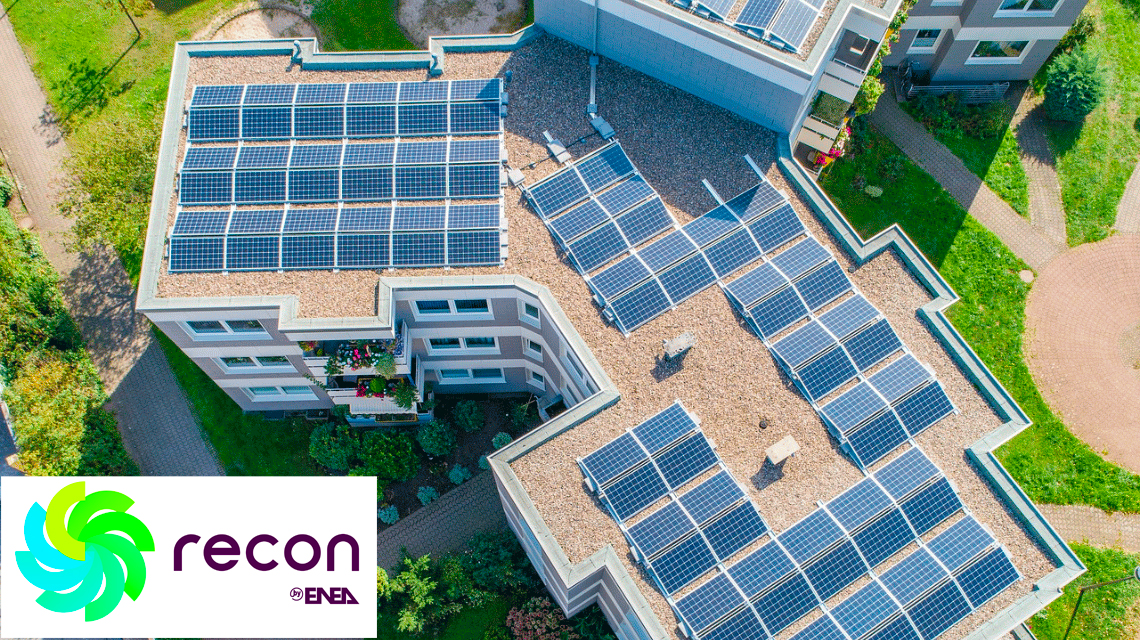Italian National Agency for New Technologies, Energy and Sustainable Economic Development

Energy: online the "simulator" to promote Renewable Energy Communities
ENEA has released the new version 2.0 of RECON – Renewable Energy Community ecONomic simulator – the web application that performs preliminary energy, economic and financial assessments with the goal to promote the creation of renewable energy communities (REC) and of jointly acting renewables self-consumers (CSS).
Updated to the legislative and regulatory framework in force in Italy[1], RECON can provide a valid support to local authorities and stakeholders to make conscious and informed choices and encourage citizens’ involvement in the energy transition, in line with the guidelines of the European Union.
RECON 2.0 has many innovations compared to the previous version, which was released in May 2021 and achieved very positive results, with more than 4,000 registered users and over 7,000 projects evaluated. Among the most important innovations: the possibility of analyzing REC and CSS composed of an indefinite number of consumers, prosumers, and producers and of simulating different consumption profiles (i.e., residential, condominium, office, school, commercial, industrial). Electricity withdrawals can be provided on a monthly or annual basis, depending on data availability, and consumption of individual prosumers is calculated by the simulator basing on the contribution of onsite self-consumption. As regards energy production from renewables, RECON 2.0 can evaluate photovoltaic plants and, shortly, modules for wind and hydroelectric systems will be released.
The economic and financial analyses are carried out at the level of the individual production plant, considering different forms of financing: operating rental, leasing, purchase with equity and/or debt capital, capital grants (including the NRRP grant dedicated to REC and CSS with RES power plants in small municipalities), and tax deductions.
RECON calculates physical and widespread self-consumption, energy self-sufficiency, environmental benefits in terms of reduction of CO2 emissions, savings linked to onsite self-consumption, revenues from energy sales, the incentive, and the Authority ARERA contribution that valorizes widespread self-consumption, O&M costs, discounted cash flows and the main financial indicators (NPV, IRR, WACC, payback time).
RECON is part of ENEA's Smart Energy Community platform, which includes other tools to increase citizen involvement in RECs projects: among these, for example, the Smart Sim online service that provides personalized feedbacks to save energy and reduce bill starting from information on the home, system equipment, appliances and consumption habits, and the DHOMUS IoT platform that suggests the most appropriate behaviors to save energy based on the monitored consumption in their homes.
The RECON simulator is financed by the Ministry of the Environment and Energy Security as part of the Electricity System Research PTR 2022-2024 - Project 1.7 "Technologies for the efficient penetration of the electricity carrier into end uses".
Notes
[1] With reference to the Legislative Decree 199/2021 that transposed the RED II EU Directive and its implementing measures (Integrated Code on Widespread Self-Consumption of the ARERA National Authority, Decree of Ministry MASE no. 414 of Dec. 7th, 2023, and GSE Operating Rules edition of Feb. 23rd, 2024)
